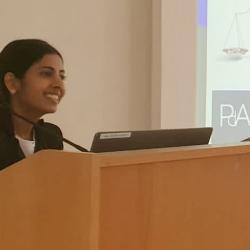| CARVIEW |
- Home
- The department
- Initiatives
- Accelerate Programme for Scientific Discovery
- CASCADE Computer Architecture & Semiconductor Design Centre
- Data Trusts Initiative
- Cambridge Ring
- The Supporters' Club
- Collaborate with Us
- Cambridge Centre for Carbon Credits (4C)
- Equality and Diversity
- LGBTQ+@CL
- women@CL
- Outreach
- Raspberry Pi Tutorials ➥
- Wiseman prize
- Research
- Research overview
- Application areas
- Research themes
- Algorithms and Complexity
- Computer Architecture
- Graphics, Vision and Imaging Science
- Human-Centred Computing
- Machine Learning and Artificial Intelligence
- Mobile Systems, Robotics and Automation
- Natural Language Processing
- Programming Languages, Semantics and Verification
- Security
- Systems and Networking
- Research groups
- Technical Reports
- Admissions
- Current students
- Current students overview
- Part IA
- Part IB
- Part II
- Masters courses
- PhD students
- Freshers
- Undergraduate teaching information and important dates
- Course material 2024/25 ➥
- Course material 2025/26 ➥
- Exams
- Exams overview
- Examination dates
- Examination results ➥
- Examiners' reports ➥
- Part III Assessment
- MPhil Assessment
- Past exam papers ➥
- Examinations Guidance 2024-25
- Head of Department's Announcements
- Marking Scheme and Classing Convention
- Guidance on Plagiarism and Academic Misconduct
- Purchase of calculators
- Examinations Data Retention Policy
- Guidance on deadlines and extensions
- Mark Check procedure and Examination Review
- Lecture timetables
- Supervisions
- Exchanges and internships
- Resources for students
- Course feedback and where to find help
- Student Administration Offices
- Intranet
Human-Centred Computing
- Research
- Application areas
- Research themes
- Algorithms and Complexity
- Computer Architecture
- Graphics, Vision and Imaging Science
- Human-Centred Computing
- Machine Learning and Artificial Intelligence
- Mobile Systems, Robotics and Automation
- Natural Language Processing
- Programming Languages, Semantics and Verification
- Security
- Systems and Networking
- Research groups
- Technical Reports
- The department
- Initiatives
- Admissions
- Current students
- Intranet
The goal of human-centred computing is to create technologies that better meet human needs, through studying the needs of humans. Using diverse research methods from social science, experimental psychology, cognitive science and other disciplines, we address grand challenges such as social and emotional interaction with robots, or crossing the perceptual line between interaction with virtual and real worlds. We work with AI, machine learning and data science methods to build intelligent tools for digital life, supporting business and engineering, artistic expression and enquiry, and enabling collaborative design processes that address global challenges. Through addressing human priorities with a commitment to cross-disciplinary rigour, we make research contributions in core fields of computer science such as human-computer interaction, computer graphics, visualisation, and display technologies. Members of the group are also leaders in emerging specialist fields including affective computing, computer music, human-robot interaction, diagrammatic reasoning, computational photography, end-user programming and ubiquitous computing.
Faculty
Research Staff and Fellows
PhD Students
Affiliates
Department of Computer Science and Technology
University of Cambridge
William Gates Building
15 JJ Thomson Avenue
Cambridge
CB3 0FD
About the department

© 2025 University of Cambridge




































